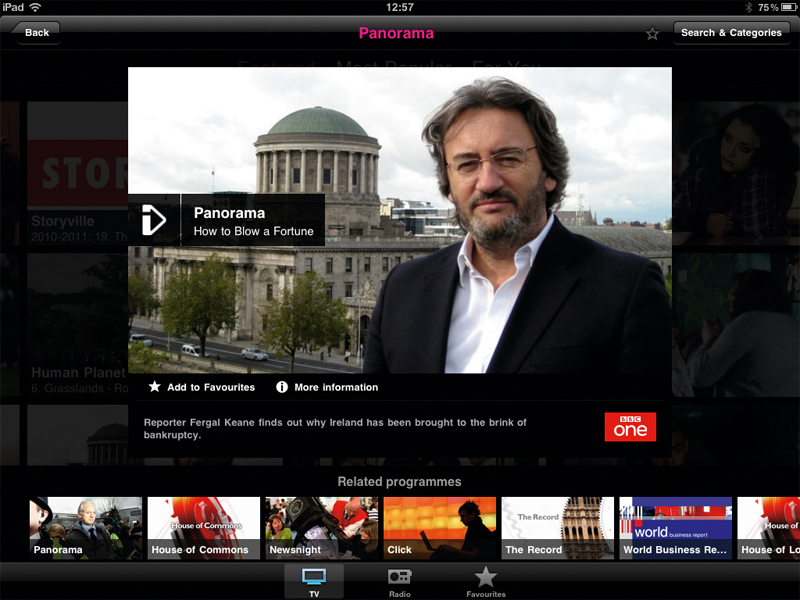BBC: We are playing catch-up with catch-up TV
Still a lot to learn about VOD

At the Westminster Media Forum in London, with TechRadar in attendance, the BBC outlined a number of areas where it believes that VOD in the UK could be improved and noted that it was still "playing catch-up" when it comes to on-demand services.
Even with the phenomenal success of the iPlayer and the fact that it is seen as the beacon of VOD in the UK, John Tate, director of policy and strategy BBC, believes that the broadcaster shouldn't rest on its laurels and should be looking at ways to improve the service and a better use of user data may well help with this.
In a speech which centred on the use of the 'second screen' – be it a laptop, smartphone or tablet – while watching television, Tate explained: "The BBC is thinking in terms of four screens and asking ourselves: can we get seamless interoperability between these screens?"
The iPlayer is key to offering a seamless experience across different devices, but Tate believes there is still work to be done to improve the usability of the service.
"The BBC is never going to go into the data crunching area like your local supermarket does but we can definitely make better use of data," Tate explained.
"At the moment when you get to the end of a show on iPlayer all it asks you is if you want to watch again – this is the sort of thing can be improved.
"We are playing catch-up with VOD – things like, why should you have to click play on the iPlayer? Surely there's some sort of rolling thing we can do? There's a lot of work needed to re-imagine VOD."
Sign up for breaking news, reviews, opinion, top tech deals, and more.
While it's not sure if and when we will see these changes happen, it will be interesting to see just what the iPlayer looks like when it lands on Sky's on-demand platform later this year.
Screen with envy
While the BBC's four screen strategy is predominately to do with the ability to access the iPlayer on multiple devices, the idea of harnessing Twitter and other social networks on your smartphone while watching TV content is something the Beeb is looking at and figuring out ways it can harness this.
But Tate believes latching on to the social side of television watching needs to be reined in when it comes to certain programmes.
"Interactivity has its place but you don't want to overdo it – shows like Sherlock and Frozen Planet on the BBC are very intense for the viewer and need people not to be distracted," he said.
This didn't stop Sherlock being one of the most talked about shows on Twitter – but this was more to do with people tweeting after the show had finished, wanting to discuss that ending.
Interestingly Tate pointed to a distinctly analogue way watchers of the BBC were trying to get more involved in shows and that is being part of the audience.
"There is a resurgence in live studio audiences," Tate explained. "So people do want to have that shared experiences, regardless of the technology they have."

Marc Chacksfield is the Editor In Chief, Shortlist.com at DC Thomson. He started out life as a movie writer for numerous (now defunct) magazines and soon found himself online - editing a gaggle of gadget sites, including TechRadar, Digital Camera World and Tom's Guide UK. At Shortlist you'll find him mostly writing about movies and tech, so no change there then.